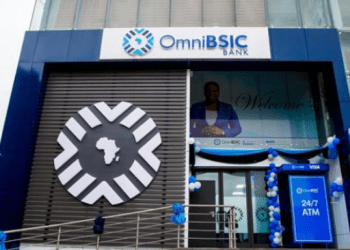The Importers and Exporters Association of Ghana (IEAG) has called on the government to urgently solve the scarcity of forex, which it stated is fueling the dubious auctioning of perishable goods.
In a statement signed by Mr. Samson Asaki Awingobit, the Executive Secretary of IEAG, it the association noted that it has observed with deep concern and outright dismay the growing trend of illegal and mafian auctioning of perishable goods at the country’s ports, a development it noted threatens the survival of legitimate businesses.
It added that the trend also erodes investor confidence and undermines the government’s own agenda of promoting local participation in trade.
“For the past months, the Association has consistently drawn the attention of the Government of Ghana and the Bank of Ghana to the crippling scarcity of foreign exchange (forex), which has made it nearly impossible for importers to access foreign currency from commercial banks at reasonable and timely rates.”
It indicated that, unfortunately, instead of finding relief, importers, especially those dealing in perishable goods such as frozen foods, are now being forced to endure a new wave of exploitation through manipulated auction systems that “serve only the selfish interests of faceless political cartels.”
“Undercleared Cargo List Manipulation Investigations by the IEAG reveal that due to importers’ inability to secure forex on time to clear their goods, their consignments are pushed onto the Undercleared Cargo List (UCL), a legal provision which traditionally affords a 60-day grace period before any auctioning procedures.”
It added that, “Shockingly, we have uncovered that this grace period has been arbitrarily and unlawfully reduced to 21 days under unexplained circumstances.”
It further alleged that during this shortened window, importers were deliberately frustrated while politically connected businessmen lay in wait for the 21 days to elapse, after which these goods are dubiously auctioned off without recourse to the original importer.
“Even more scandalous is the fact that no genuine gazetting or legal processes are followed, leaving affected importers completely dispossessed of their investments. It is appalling that after losing their goods through these questionable auctions, importers are still compelled to pay accumulated demurrage on consignments they were never allowed to clear.”
The IEAG added that, meanwhile, the businessmen who acquire these goods through the backdoor were exempted from paying demurrage and only parted with a service charge of GH₵6,000–GH₵10,000 to the shipping lines.
It said, “This fraudulent system not only robs importers of their hard-earned capital but also denies the state valuable revenue at a time when Ghana desperately needs every pesewa to stabilise the economy. The Association finds it deeply demeaning and unacceptable that in a climate where forex is scarce and importers spend weeks or even months sourcing funds to clear their goods, they are subjected to such a predatory and heartless system.”
The association questioned how the government could call for local business growth and inclusiveness while allowing such hostile practices that only empower corrupt political cabals to the detriment of genuine traders.
The association called for an immediate restoration of the 60-day UCL grace period for perishable goods, in strict compliance with the law; introduction of a first-time clearance option, where importers who miss deadlines due to genuine forex challenges are allowed to pay penalties and clear their goods before any auctioning; and a comprehensive investigation by the Customs Division of the Ghana Revenue Authority (GRA) and the Security Services into the cabal benefiting from these auctions.
They also called for urgent intervention by the Bank of Ghana to ensure forex is made available to importers through commercial banks at fair and predictable rates, adding that failure to address these grievances would not only cripple local businesses but also erode investor confidence and push Ghana further down the path of economic instability.
“The IEAG wishes to make it clear that it will not sit aloof while its members are subjected to such exploitation. We stand ready to explore every legal and legitimate means, including mass action, should the government and relevant authorities fail to act swiftly to end this illegality,” it stressed.














